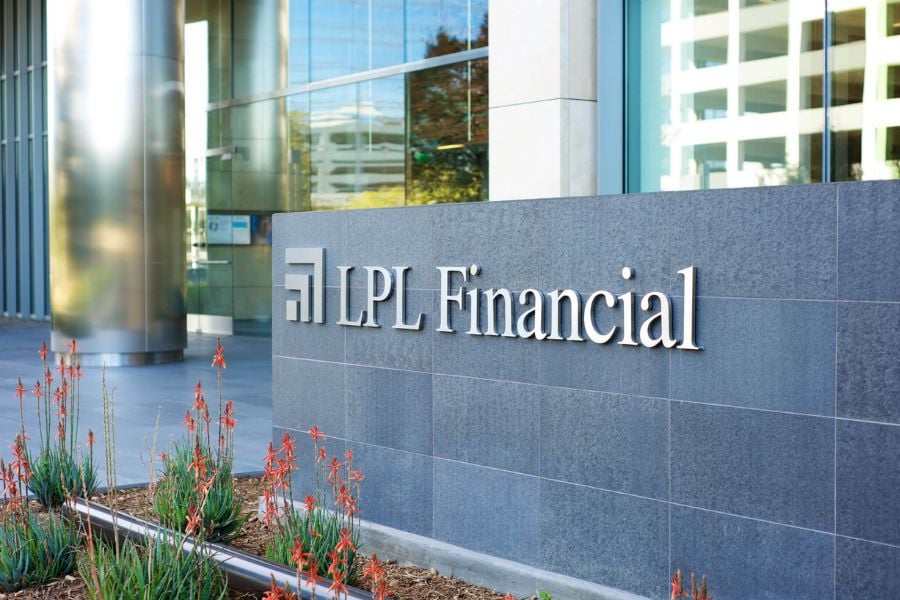

After several months, LPL Financial has officially closed its milestone acquisition of New York-based Atria Wealth Solutions.
The landmark deal for the broker-dealer aggregator, which was first announced in February, significantly expands LPL's already massive scale in the wealth space, adding thousands of financial advisors to its pre-existing workforce of more than 20,000 advisors.
“The team at Atria has built a company which is aligned with our clear mission at LPL, to prioritize the advisor experience so advisors can best serve their clients,” Rich Steinmeier, managing director and chief growth officer at LPL Financial, said in a statement Tuesday.
“Together, we’re leveraging the strengths of our companies and empowering the approximately 2,400 Atria advisors and nearly 150 banks and credit unions with the advanced technology and services to deliver exemplary financial guidance to their clients while running thriving businesses,” Steinmeier said.
Atria’s leadership, including chief executive officer and founding partner Doug Ketterer, will remain in place as the firm continues to operate as a fully owned portfolio company of LPL.
Ketterer highlighted the alignment between the two firms, stating: “LPL’s well-respected position of industry leadership, investments in innovative technology and deep commitment to helping foster advisors’ continued success align with the very purpose of why we founded Atria eight years ago.”
LPL's equity purchase for Atria included an upfront value of $805 million, plus another potential $230 million based on retention after the closing of the transaction, according to an investor presentation in February. The firm expects to retain at least 80 percent of Atria’s advisors as part of the transition, which is scheduled to conclude by mid-2025.
Time will tell whether LPL can hit that goal, which may be ambitious based on the aftermath of its 2017 deal with Jackson National Holdings. Following that transaction, LPL said it held onto roughly 70 percent of the revenue previously brought in by the broker-dealers it acquired from the insurance firm.
LPL's 80 percent target translates into $80 billion in assets, according to an April analyst note from JPMorgan on the Atria deal. And while it's more than what it managed from its deal with Jackson National, it's also a conservative estimate when stacked up against the 95 percent retention rate following its deal with Waddell & Reed in 2020.
"Ultimately, LPL continues to expect a run-rate [earnings before interest, taxes, depreciation and amortization] contribution of about $140 million from the Atria acquisition when fully ramped," the note read.
The lead-up to today's announcement also included a significant compliance clean-up at one of the seven broker-dealers involved in the Atria deal, Western International Securities. In July, it settled with regulators on several items that, taken together, amounted to almost $1.7 million in penalties.
"This is a standard business practice: firms have to tidy up their books before a merger because they want to quantify the liability," one senior industry executive told InvestmentNews at the time.

Looking to refine your strategy for investing in stocks in the US market? Discover expert insights, key trends, and risk management techniques to maximize your returns

The RIA led by Merrill Lynch veteran John Thiel is helping its advisors take part in the growing trend toward fee-based annuities.

Driven by robust transaction activity amid market turbulence and increased focus on billion-dollar plus targets, Echelon Partners expects another all-time high in 2025.

The looming threat of federal funding cuts to state and local governments has lawmakers weighing a levy that was phased out in 1981.

The fintech firms' new tools and integrations address pain points in overseeing investment lineups, account monitoring, and more.
RIAs face rising regulatory pressure in 2025. Forward-looking firms are responding with embedded technology, not more paperwork.
As inheritances are set to reshape client portfolios and next-gen heirs demand digital-first experiences, firms are retooling their wealth tech stacks and succession models in real time.
